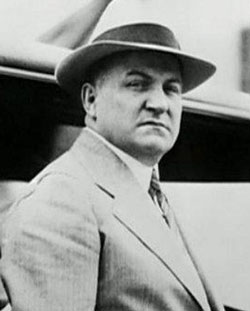There are twenty-seven amendments to the United States Constitution. Citizens for years have debated about getting rid of some of them. We still hear it today. But it actually happened in 1932. Americans voted to repeal the 18th Amendment with the 21st Amendment. But not after Congress was accused of encroaching on the rights of all citizens.

To be perfectly blunt, the 18th Amendment was a big mistake, for several reasons. The controversy was not about intoxicating beverages, but how the whole system was set up to fail.
In December 1917 Americans voted to enacted Prohibition. Texas Senator Morris Sheppard led the move to close down all saloons, wineries, breweries, distilleries, and all other illegal alcoholic industries. Senator Sheppard even wrote the Volstead Act, that legislation to control prohibition. However, it was not a wise thing to do.
The United States had survived several years of economic tragedy, unemployment, starvation, and rising crime. As soon as the 18th Amendment went into effect, all employees of the above-mentioned industries as well as glass makers, truck drivers, bar tenders and the like were out of their jobs. The economics of the 1920s were shaky at best. Even before the Stock Market bottomed out in October 1929, Americans were barely making a living.
One of the issues that rose in numbers was crimes. If you stop to think about it, members of the Mafia and other criminals were very clever at providing Americans with “intoxicating beverages”, importing from Canada and the Caribbean Island, and hiding their wares many times. They became millionaires almost instantly.
One such entrepreneur was George Remus who came to the United States from Germany with his parents at the age of 6. As an adult he operated a pharmacy on the West Side of Chicago. There he peddled questionable brew under the label Remus’s Nerve Tonic that was loaded with toxic ingredients. But it sold well and if someone died from it, no one seemed to care, especially policemen.
When Senator Sheppard wrote the Volstead Act with strict laws, the federal and state government did not adequately fund those laws. As the economy dropped and dropped, funds were not taken from other sources to control crime.
Here’s where George Remus entered the picture. He attended law school at nights until he was a certified defense attorney who represented criminals worth thousands of dollars. Studying the laws carefully he discovered that there was a loophole that permitted pharmacists to legally acquire liquor for “medicinal purposes.”
Cincinnati just happened to be where 80 percent of the country’s pre-Prohibition bonded whiskey was stored within 300 miles. Mr. Remus quickly relocated to Cincinnati where he created an elaborate scheme of buying distilleries, wholesale drug companies, and a transportation company. Just in case he bribed local and national government officials. Within a year he owned 35 percent of all the liquor in the United States. Tabloids named him the “King of Bootleggers.”
This is only one example of crime just prior to the Great Depression. For more stories and interesting facts, join me at the Audie Murphy/American Cotton Museum for Lunch Break Special on October 3rd. Lunch begins at noon. I look forward to seeing you there.
